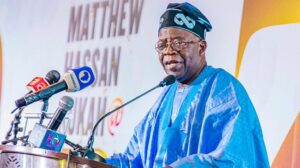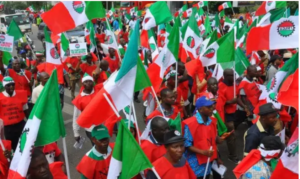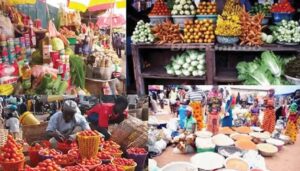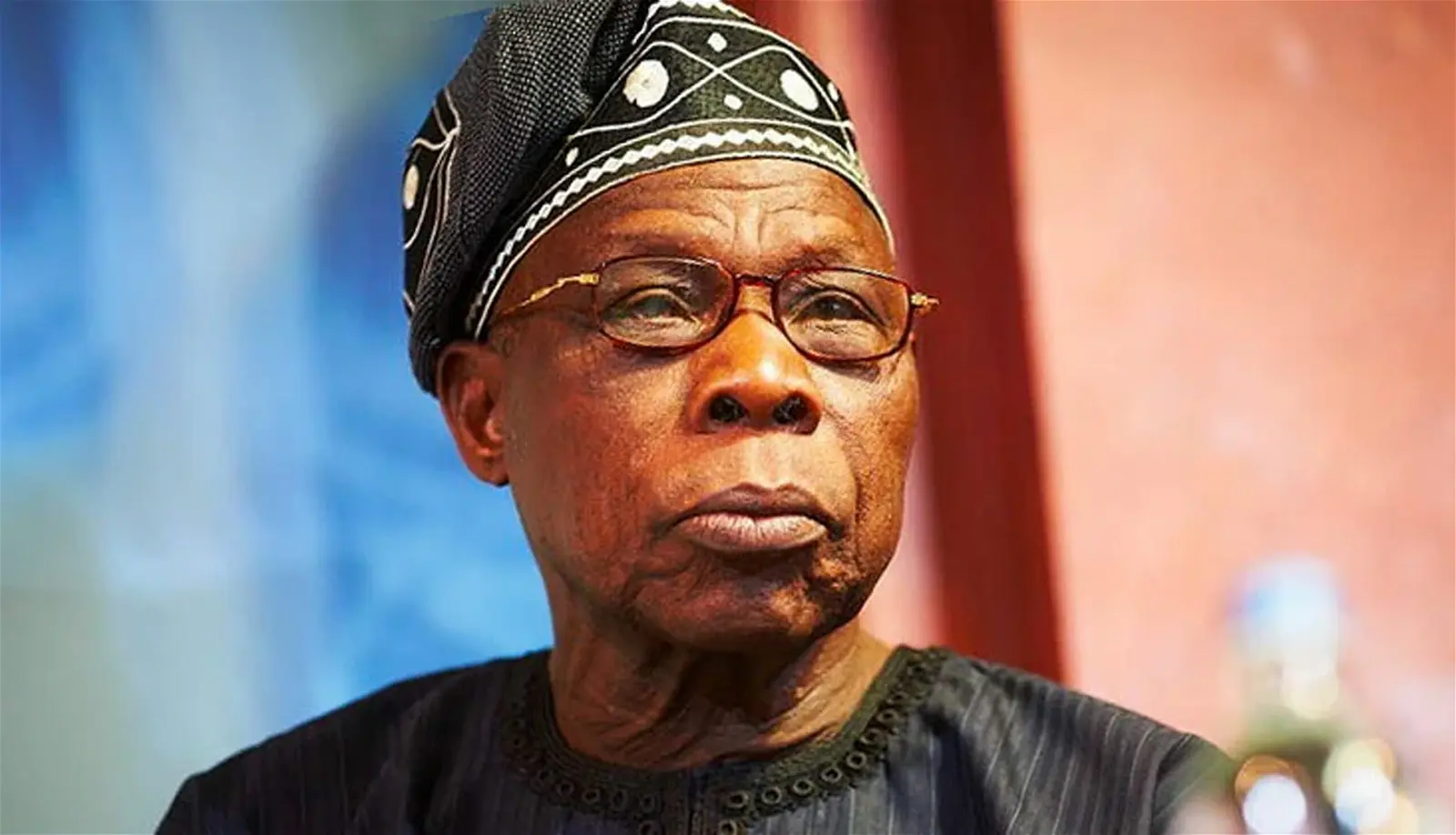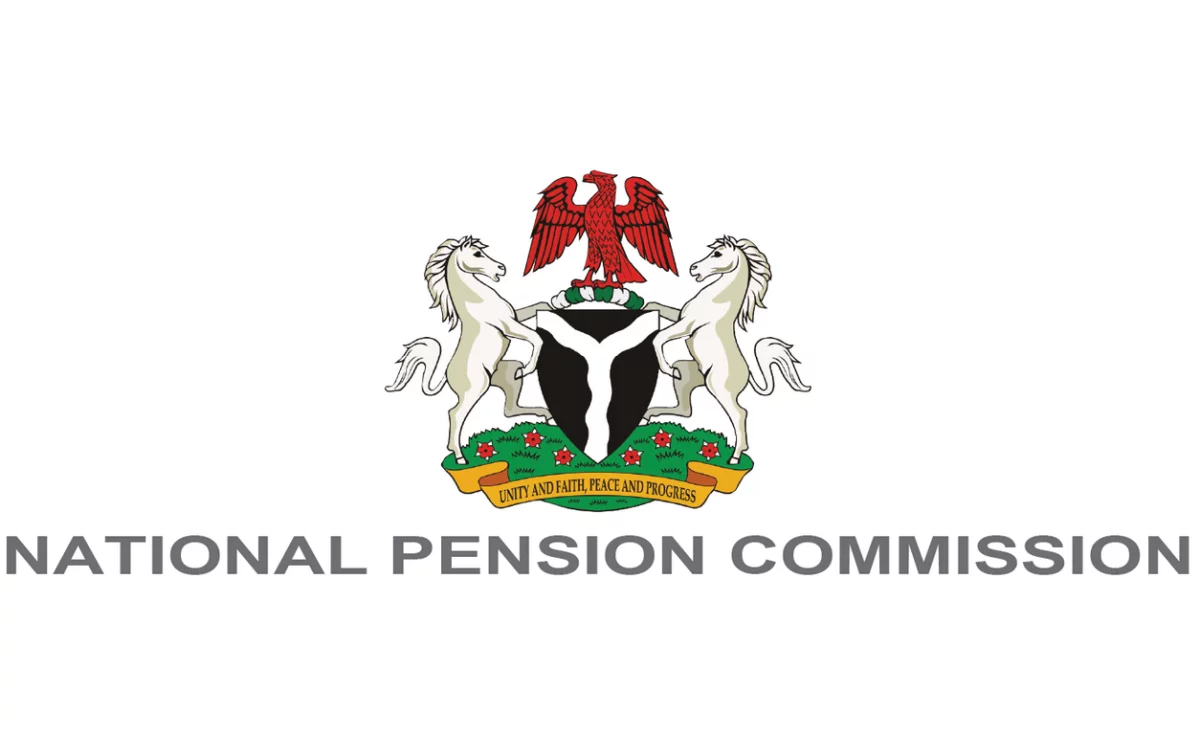COVID-19: 63% of Nigerians plunged into multidimensional poverty — FG
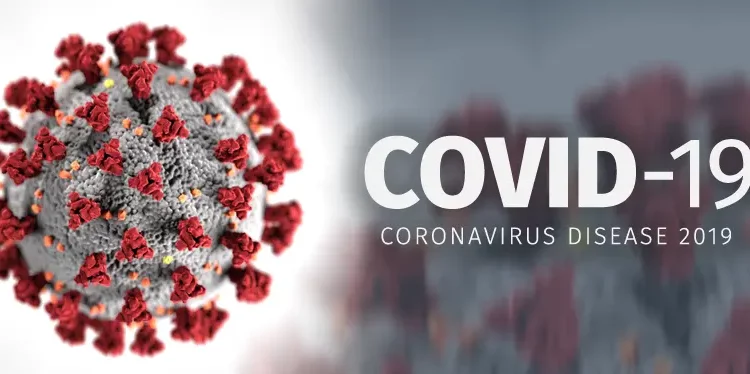
Federal Government on Tuesday lamented that despite progress in reducing poverty rates in recent years, the COVID-19 pandemic that ravaged Nigeria and other parts of the world has pushed approximately 63 per cent of the country’s population into multidimensional poverty of which almost 70 million are children.
Secretary to the Government of the Federation, Dr George Akume, said this in Abuja while declaring open a two-day policy and programmatic dialogue on Nigeria’s poverty and vulnerability profile and social register.
The event coming ahead of the implementation of the palliatives to cushion the effect of the fuel subsidy removal was organized by United Nations Children’s Fund (UNICEF) in conjunction with Nigerian government, European Union (EU) and other stakeholders to expand Nigeria’s social register and establish a robust, inclusive and responsive social protection system in the country.
“Poverty and vulnerability remain pressing challenges in our country, and as we gather here today, it is crucial to recognize the impact of these issues on our fellow citizens.
“Despite progress in reducing poverty rates in recent years, the COVID-19 pandemic has presented us with new challenges, pushing approximately 63% of our population into multi-dimensional poverty of which almost 70 million are children,” SGF said.
Akume who was represented by the Permanent Secretary, Political and Economic Affairs of the Secretary to the Government of the Federation, Nko Esuabana, said this setback emphasized the urgency to strengthen the efforts in mitigating these issues and improving the lives of millions of Nigerians.
The former Governor of Benue state said: “Nigeria’s social inequalities further exacerbate the situation, as access to essential resources such as food, education, healthcare, and infrastructure is unevenly distributed. Women, children, and persons with disabilities are among the most vulnerable groups facing poverty, ill- health, and economic shocks.
“To address these challenges, the Social Protection Development Partner group, in partnership with the Nigerian government, has organized this two-day policy dialogue with the primary objectives of developing a common understanding of poverty and vulnerability in Nigeria, identifying key indicators for measuring poverty and vulnerability, and devising strategies to strengthen the National Social Registry.
https://googleads.g.doubleclick.net/pagead/ads?gdpr=0&us_privacy=1—&client=ca-pub-1896573800096815&output=html&h=188&slotname=7723325239&adk=2681531484&adf=1963314832&pi=t.ma~as.7723325239&w=750&fwrn=4&lmt=1690296151&rafmt=11&format=750×188&url=https%3A%2F%2Ftribuneonlineng.com%2Fcovid-19-63-of-nigerians-plunged-into-multidimensional-poverty-fg%2F&host=ca-host-pub-2644536267352236&wgl=1&uach=WyJXaW5kb3dzIiwiMTUuMC4wIiwieDg2IiwiIiwiMTE1LjAuNTc5MC45OCIsW10sMCxudWxsLCI2NCIsW1siTm90L0EpQnJhbmQiLCI5OS4wLjAuMCJdLFsiR29vZ2xlIENocm9tZSIsIjExNS4wLjU3OTAuOTgiXSxbIkNocm9taXVtIiwiMTE1LjAuNTc5MC45OCJdXSwwXQ..&dt=1690296241530&bpp=3&bdt=553&idt=613&shv=r20230719&mjsv=m202307190101&ptt=9&saldr=aa&abxe=1&cookie=ID%3D5392cc2f0fcb21ac-2235a28fa4e100cc%3AT%3D1687037552%3ART%3D1690296215%3AS%3DALNI_MZ9f7_MzbjBpT3mV7PReP0hWdOcMg&gpic=UID%3D00000c50e3b1806f%3AT%3D1687037552%3ART%3D1690296215%3AS%3DALNI_MbYpEFHHw8JLUDb-2vw3-dsy_qx-Q&prev_fmts=0x0%2C728x90&nras=1&correlator=3568806811906&frm=20&pv=1&ga_vid=201341167.1687037546&ga_sid=1690296242&ga_hid=59395744&ga_fc=1&rplot=4&u_tz=60&u_his=50&u_h=768&u_w=1366&u_ah=720&u_aw=1366&u_cd=24&u_sd=1&dmc=8&adx=105&ady=1956&biw=1349&bih=586&scr_x=0&scr_y=0&eid=44759876%2C44759927%2C44759842%2C31076178%2C31076251%2C44788441&oid=2&pvsid=1311727753698112&tmod=877962618&uas=0&nvt=1&ref=https%3A%2F%2Ftribuneonlineng.com%2F&fc=1920&brdim=0%2C0%2C0%2C0%2C1366%2C0%2C1366%2C720%2C1366%2C586&vis=1&rsz=%7C%7CeEbr%7C&abl=CS&pfx=0&fu=128&bc=31&ifi=3&uci=a!3&btvi=1&fsb=1&xpc=sHSroCDxPm&p=https%3A//tribuneonlineng.com&dtd=619
“Through our collective efforts and the outcomes of this dialogue, we aim to achieve the following: develop a shared understanding of poverty and vulnerability in Nigeria among all relevant stakeholders, including government officials, civil society organisations, and development partners. This common understanding will pave the way for more coordinated and efficient policy design and program implementation;
“Identify key indicators for measuring poverty and vulnerability in Nigeria, aligning them with a nationally agreed measure. By establishing these indicators, we will enhance our ability to accurately assess poverty levels and progress over time, leading to better-informed decision-making processes;
“Strengthen the National Social Registry, making it the singular database for poverty reduction interventions used by all stakeholders in policy and program design. This enhancement will enable us to ensure that the social register reflects the true poverty and vulnerability profile in Nigeria, aiding in the effective targeting of interventions;
“After this dialogue, we anticipate that we will establish a comprehensive framework that accommodates various dimensions of poverty and vulnerability in Nigeria.
“Armed with this knowledge and strategic approach, we will be better equipped to design and implement effective poverty reduction and social protection policies and programs, with a particular focus the on populations in our country. most vulnerable,” he said.
UNICEF Nigeria Representative, Cristian Munduate, said the goal of the dialogue was to establish framework for implementation in Nigeria where all citizens, particularly women, children, and the disabled, have access to strong social protections and are not living on the edge of poverty.
“Amid global challenges such as oil price fluctuations, insecurity, socio-economic disparities, and pandemics like COVID-19, poverty is further gripping our people, indicating a dire need for effective social protection interventions,” she said.
Acting Head of Cooperation of the European Union Delegation, Mr Ruben Alba, said there was no better time of having the workshop than now that the new administration is planning to support the poor and vulnerable households with palliatives to cushion the effect of the subsidy removal.
(Tribune)

